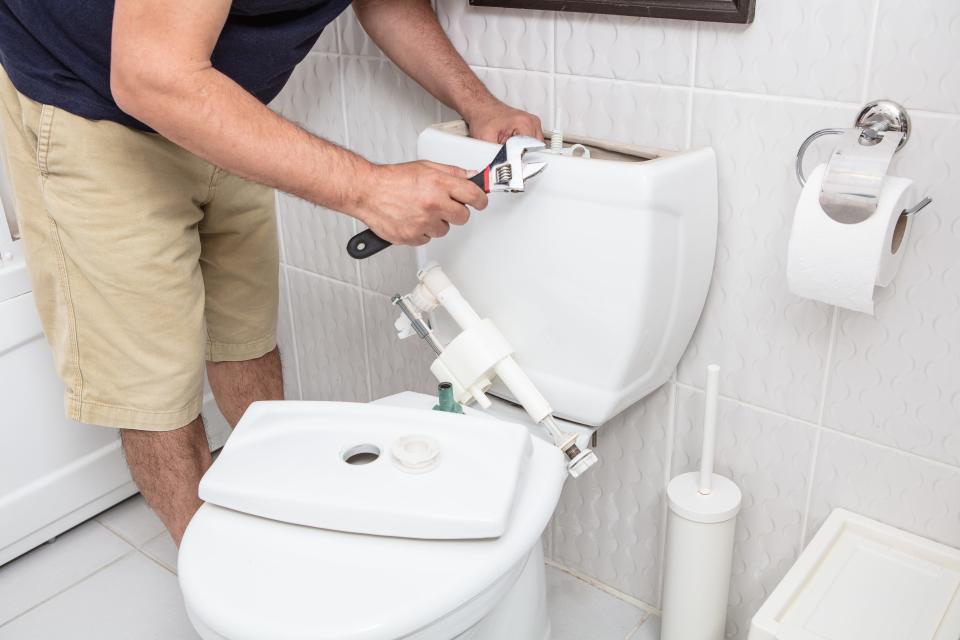Plumber or plunger? A pro answers some of the most important plumbing questions
Plumber or plunger? The inevitable question when something’s clogged, leaks, breaks or in efforts to do preventative maintenance is: What do we do ourselves, and what’s best left to a professional?
Here’s what Bayo Taylor, a New York plumber with Mr. Unclog, had to say about the issues people face, what they can do — and what they should have a plumber handle.

When to be proactive, and when to call a plumber
One preventative step is to have a camera inspection done inside of the sewer line, and for that— get a plumber. Otherwise, a homeowner may not know whether something is headed toward a blockage, which could prove expensive in the long run.
“The minute that line backs up and floods your basement, that could be from anywhere form $300 or $500 to thousands of dollars to clean up,” Taylor said, and some house sales may require camera inspection of lines anyway.
Another preventative step requires no plumber: Consider using a thinner toilet paper. Older pipes with rust can see thicker paper accumulate inside.
“One of the biggest things I come across is the toilet paper that they are are using is something too thick, and it’s not breaking down when they are flushing,” he said. “Maybe some people don’t like to use a thinner toilet paper, but you may be saving a lot of money by using a thinner toilet paper.”
Another piece of prevention: A person can also install a flood alarm/sensor.
"You want to put it in the lowest level in your basement, or a boiler room or other places prone to water,” Taylor said. “Maybe you want to talk to your plumber, say, where are the best places to put these?”
“A flood alarm can save you so much money,” he said. “And it’s something real simple that nobody thinks about.”
What should you do about clogging shower drains?
If someone wants to try to clear a blockage, Taylor said, use an enzyme drain cleaner — don’t use something with acid in it.
“Most of the houses in Westchester, [they have] older pipes, which is galvanized pipe,” Taylor said, “so any acid inside of the pipe is not good for the joints.”
You can also clean the drain area to try to prevent gunk from building up. If the blockage seems farther down in a pipe, Taylor said a person could try to use a manual drain-snake device.
However, he urged caution for anyone attempting to use a power drain snake on his or her own— have a plumber do that instead.
“Because if they don’t know what they are doing they could get (the device) stuck inside of the pipe,” he said, adding that even with the manual drain snake it’s important to take care that it’s used carefully and is the right size because, if too thick, it could affect the pipe.
Clogged toilet? Here's what to do
You can use a plunger to clear things up. If the problem is unusual and persists, then perhaps it's time to reach out to a plumber.
If a toilet overflows, shut off the valve behind it and contact the plumber, Mr. Unclog's website says. The site has a handy FAQ page offering tips on various plumbing issues.
Can I fix my own water heater?
Taylor said water heaters and issues with them should be handled by a professional.
“Anything that involves gas in your house — I would definitely tell customers to stay away from gas pipes,” he said.
What a person could consider doing is simply cleaning under the boiler, if he or she feels up to it — some people don’t feel comfortable and may want to have someone do it. Cleaning underneath can allow it to work more efficiently.
Can I fix leaky pipes myself?
Generally, they are something a professional should tackle.
But one thing a person should know, in the case of a leak coming from a water line, is where the home’s main water shut-off valve is.
“In the case of emergency, that’s the first place you’re going to, to shut off water for the house that’s going to decrease the damage,” Taylor said.
Get more tips at mrunclog.com.
Michael McKinney covers growth and development in Westchester County and the Lower Hudson Valley for The Journal News/lohud.com and the USA Today Network.
This article originally appeared on Rockland/Westchester Journal News: Can I fix it myself? When to call a plumber, and when to DIY

